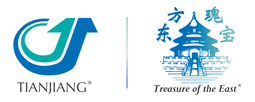Four Traditional Chinese Medicine Therapies for Eczema
Eczema is a common condition affecting nearly a third of people in the United States. Because there is no known cure for eczema, our goal is to provide a helpful resource on how Traditional Chinese Medicine (TCM) may help reduce the frequency and intensity of eczema flare-ups – safely and naturally.
What is Eczema?
Eczema, also known as atopic dermatitis, is a common, chronic, noncontagious skin condition characterized by itchy, dry, and inflamed skin.
Eczema symptoms can vary according to whether the stage of eczema is acute, subacute, or chronic.
What are the Symptoms of Eczema?
General symptoms of eczema may include:
- Red or brownish-gray patches
- Small, raised bumps, which may leak fluid when scratched
- Thickened, cracked, dry, scaly skin
- Intense itching, particularly at night
What Causes Eczema?
Eczema is believed to be driven by a complex interaction of genetic, immune, and environmental factors.
The impaired skin barrier in individuals with eczema can result in increased water loss from the skin, leading to dryness, cracking, and inflammation. This can create an "itch-scratch cycle" that worsens the skin condition.
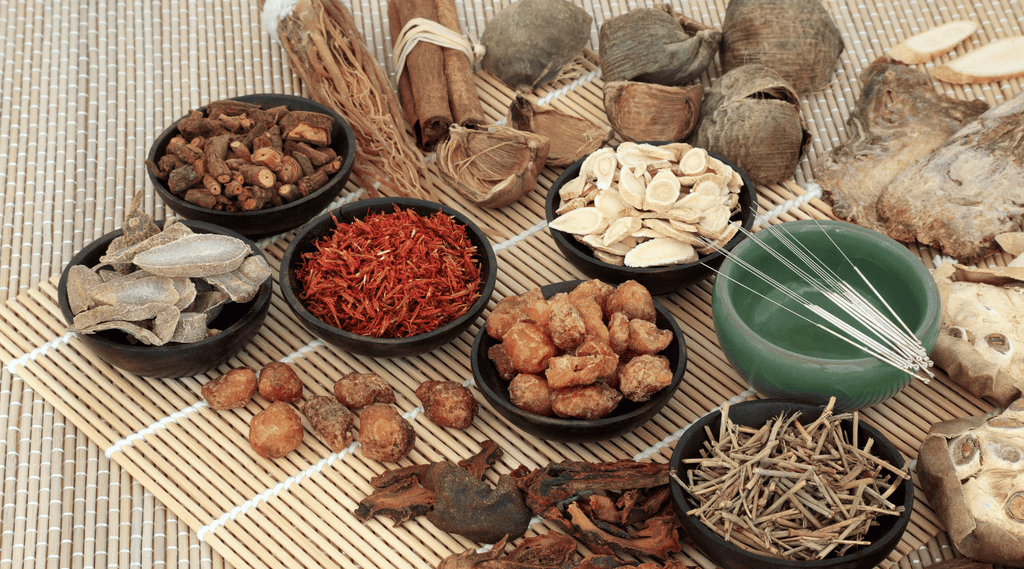
How Does Chinese Medicine View Eczema?
Eczema is known as “Shi Zhen” (“damp eruption”) in Chinese medicine.
Eczema is typically seen as a manifestation of an imbalance, most notably in the Lung, Spleen, and Kidney organ systems. Eczema is also understood to occur in two distinct patterns: Damp-Heat (acute stage) and Blood, Fluid, and/or Yin Deficiency (chronic stage).
What Triggers Eczema, according to TCM?
In addition to underlying imbalances of eczema, TCM highlights the role that various lifestyle factors and environmental influences can play in triggering or worsening eczema. These may include:
- Emotional stress
- Improper diet
- Allergens
- Exposure to extreme weather conditions
- Poor digestion and poor diet
- Weak immune system
How Does TCM Address Eczema?
TCM aims to correct internal imbalances of eczema, while reducing triggers that cause eczema flare-ups. TCM's therapeutic objectives include: reducing inflammation, strengthening the immune system, clearing heat, dampness and/or toxins, moisturizing the skin, and alleviating itchiness.
Individual treatment plans may include (1) Chinese herbal medicine, (2) acupuncture, (3) moxibustion and (4) tailored lifestyle and dietary advice.
Let’s explore these 4 ways Traditional Chinese Medicine (TCM) can help with eczema.
1. Chinese Herbal Medicine for Eczema
Chinese herbal formulas are combinations of herbs designed to work in concert to treat patterns of disharmony or imbalance within the body.
Herbal formulas commonly used for eczema include the following:
Shi Zhen Fang (Lonicera & Smilax Combination)
Shi Zhen Fang is a modern formula used to resolve Wind-Heat and transform Dampness to address both acute and sub-acute stages of skin rashes.
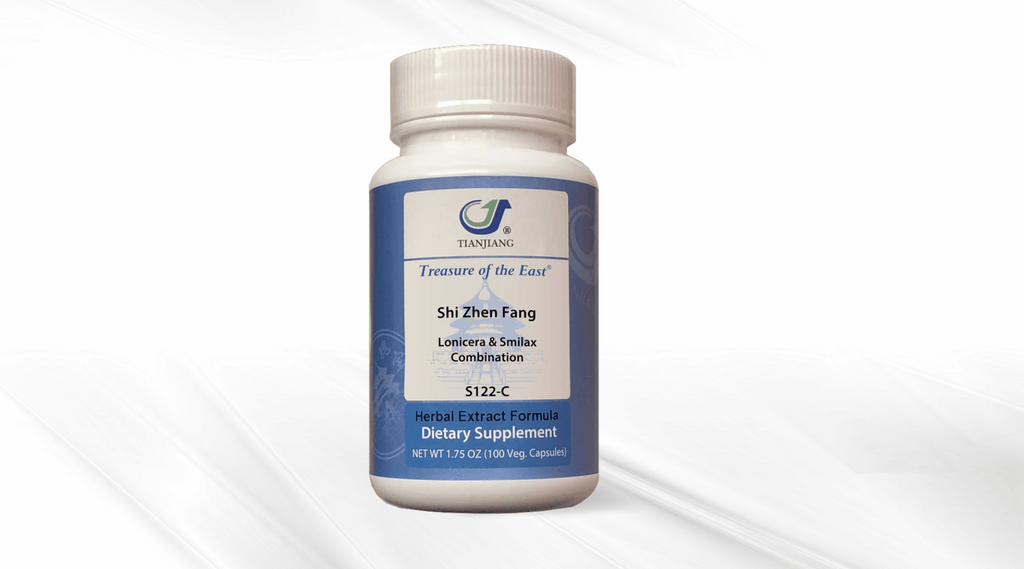
Shi Zhen Fang has been used to relieve skin rashes, and may be used both internally and externally as a topical salve.
Xiao Feng San (Eliminate Wind Powder)
Xiao Feng San, also known as Wind-Reducing Formula, is a classical formula often suggested to relieve itching.
Those suffering from early stages of a poison oak rash, eczema flare-ups or other skin conditions involving itching, rash, red skin, lesions, and skin discharge from scratching, may want to ask their practitioner about this formula.
Dang Gui Yin Zi (Dang Gui Decoction)
Dang Gui Yin Zi is traditionally used in Chinese medicine to nourish the blood, moisten dryness, clear heat and dispel wind.
Those suffering from chronic skin conditions such as eczema, psoriasis, and urticaria have found some benefits from this formula. Typically, itching is worse at night for this pattern.
Long Dan Xie Gan Tang (Gentiana Cleansing Decoction) may be suitable for acute cases of eczema due to its strong function of draining heat from the Liver and Gallbladder meridians and alleviating symptoms of Damp-Heat.
Huang Lian Jie Du Tang (Coptis Relieving Toxin Decoction) is also useful for acute stages of eczema with its strong action of clearing damp-heat and heat toxins.
Individual Chinese Herbs commonly used for eczema:
Bai Xian Pi (Dittany Bark Root), Zi Cao (Arnebia), Ku Shen (Sophora Root), and Fang Feng (Siler Root) are examples of individual herbs containing TCM properties that may assist in reducing the frequency and intensity of eczema flare-ups.
Additionally, herbs such as Qing Dai (Indigo) may be used for eczema as a poultice (or herbal paste) that is applied directly to the skin. The cooling, nourishing and detoxifying properties of these herbs then penetrate the skin layers to bring relief.
2. Acupuncture for Eczema
Acupuncture may help eczema sufferers by reducing itchiness and inflammation, calming overactive immune responses, and reducing stress, which can be a trigger for eczema flare-ups. Acupuncture is a well-known therapy for quickly activating the relaxation response in the nervous system.
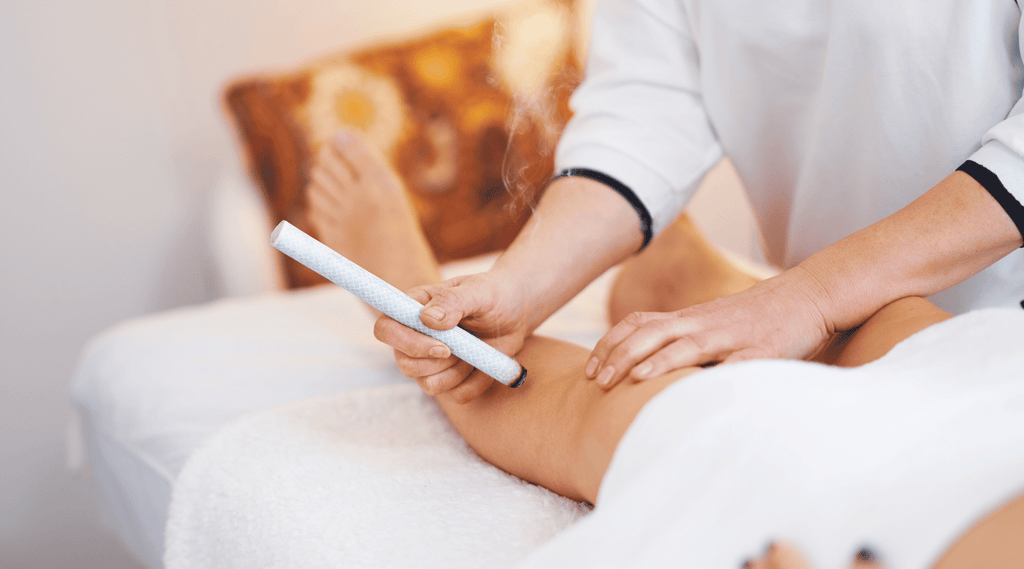
3. Moxibustion for Eczema
Research suggests that moxibustion (heat therapy using Ai Ye or dried mugwort) may help aid in healing eczema. By stimulating acupuncture points, moxibustion may help relieve inflammation and enhance immune function.
4. Dietary Therapy for Eczema
TCM believes certain foods have "hot" or "cold" properties, and eating too many "hot" foods can exacerbate inflammatory conditions like eczema.
A great many foods in TCM are believed to possess specific therapeutic properties. TCM practitioners are therefore highly qualified for making dietary recommendations intended to strengthen the body's ability to heal and minimize inflammation.
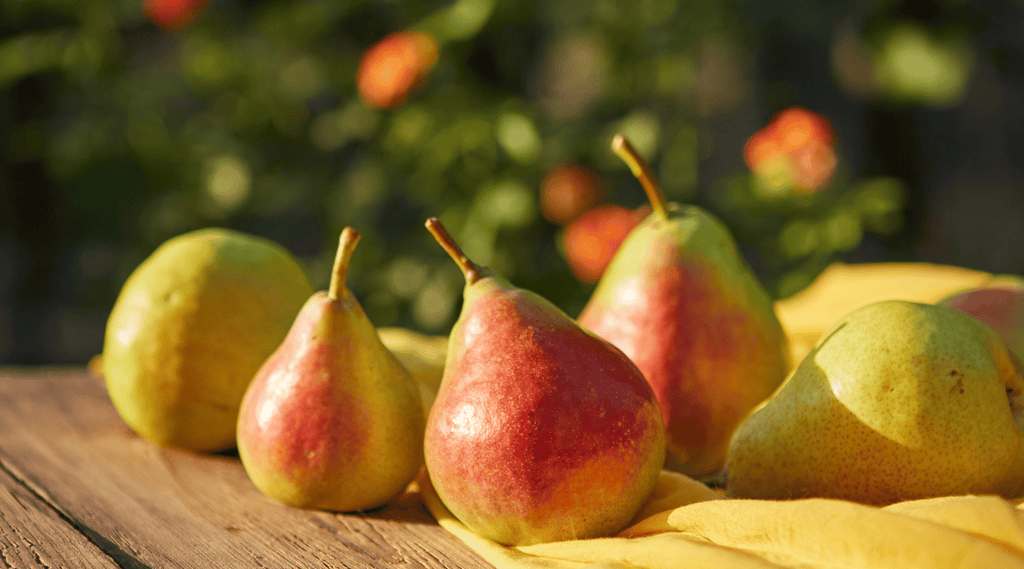
Steering clear of foods like chili peppers, chocolate, shellfish, and alcohol that could trigger or worsen symptoms due to their "warm" or "hot" properties can be beneficial.
Some foods recommended to reduce flare-ups include mung beans, pears, and lotus root.
Maintaining a regular lifestyle that includes ample rest and reducing stress through relaxation techniques can also have a positive impact on managing eczema.
Conclusion
We hope this article has provided helpful information on the potential benefits of Chinese medicine for eczema. For many suffering from this chronic condition, Traditional Chinese Medicine (TCM) may offer a safe and holistic method for soothing flare-ups to provide natural relief.
Always consult with a qualified healthcare provider before using herbs or other dietary supplements, as some may have side effects or interact with medications.
Our wish is to empower TCM practitioners and their patients with premium-level Chinese herbs for effective weight management and for improving overall well-being.
Practitioners, did you know...? Treasure of the East’s full-spectrum extracts contain the same active chemical constituents as raw herbs! Register for a professional account today, or read on to discover all the benefits of including full-spectrum granules in your herbal pharmacy.
This article is provided only as an educational resource - it is not intended or implied to be a substitute for professional medical advice, and the herbs and/or formulas within are not intended to diagnose, treat, cure or prevent any diseases. This information is intended for only licensed healthcare practitioners.
